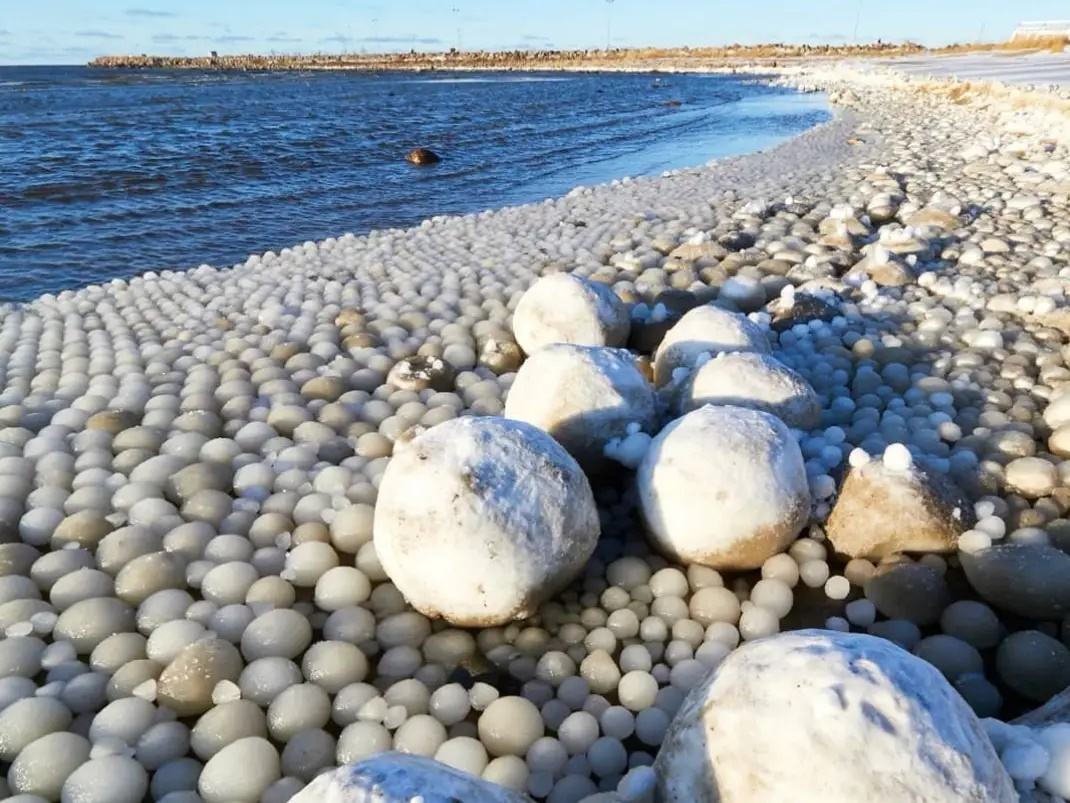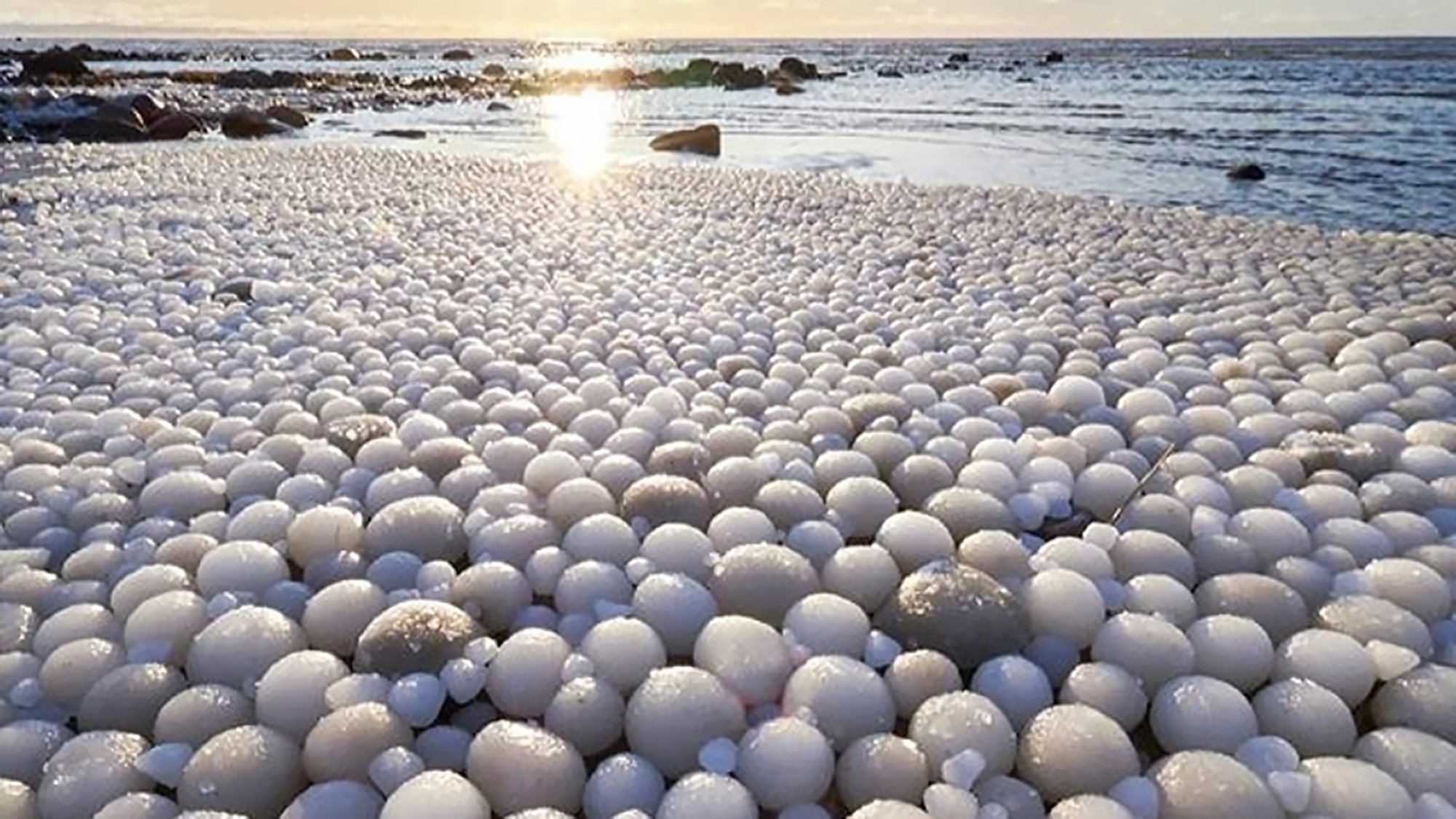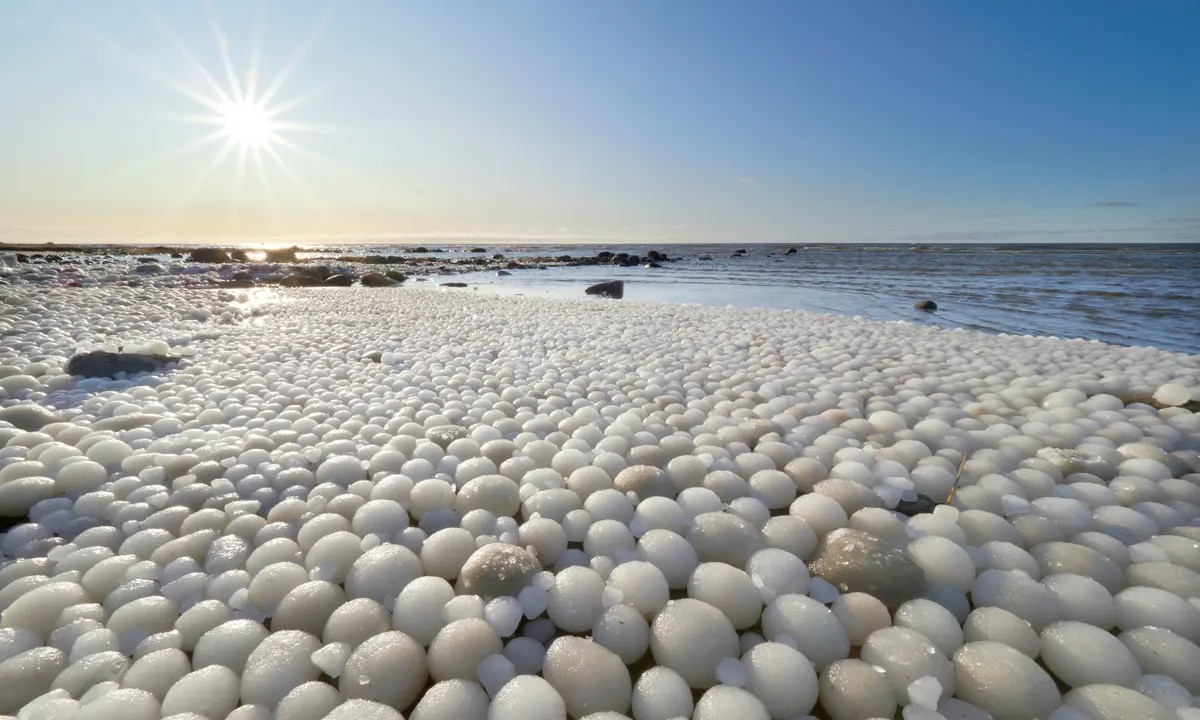In Finland, a rare and intriguing natural phenomenon has recently been spotted, known as “ice eggs.” These icy spheres form under highly specific conditions, making the sighting a unique and remarkable one. The discovery was made by Risto Mattila, an amateur photographer, and his wife, as they were strolling along Marjaniemi beach on Hailuoto island. The beach was entirely covered by an expanse of small icy balls that stretched out over 30 meters (98ft), creating an awe-inspiring sight.
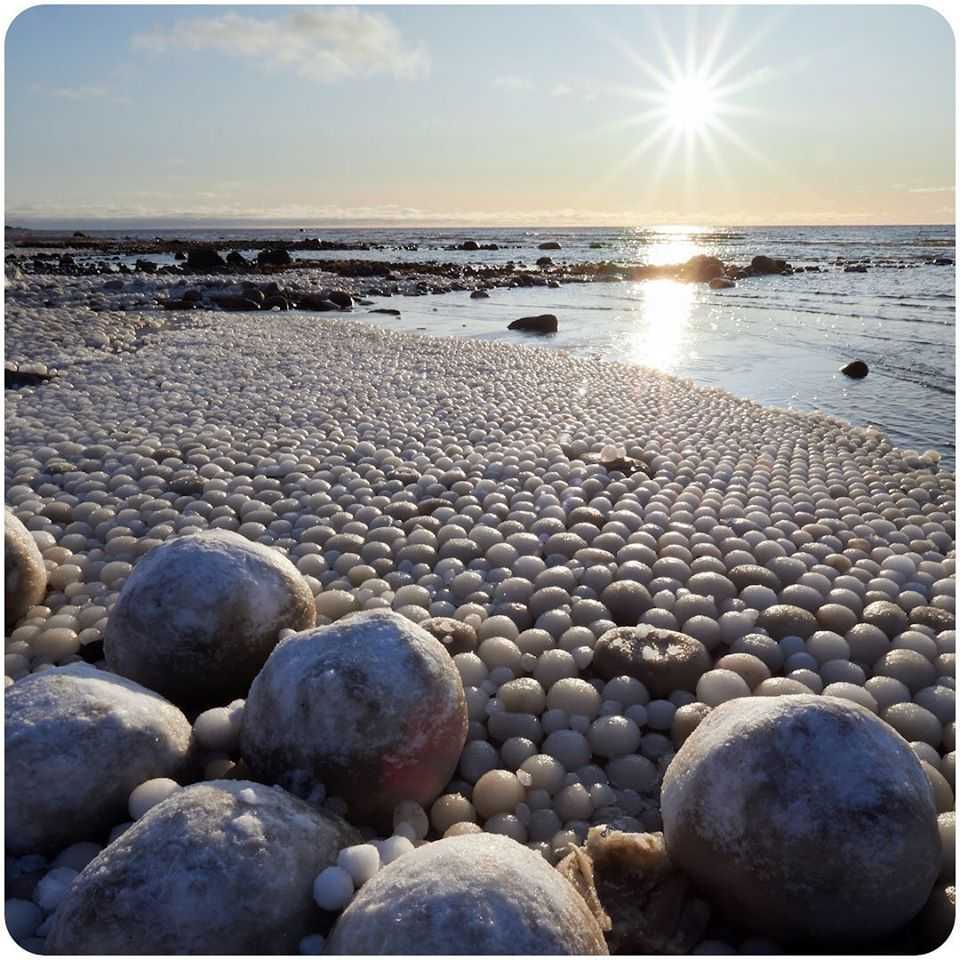
Mattila described the largest of the eggs to be about the size of a football, which is quite remarkable when you consider that these spheres are created by natural processes. As an amateur photographer, he was amazed by the phenomenon and had never seen anything like it before. Experts agree that this occurrence is not common and requires highly specific conditions to form.
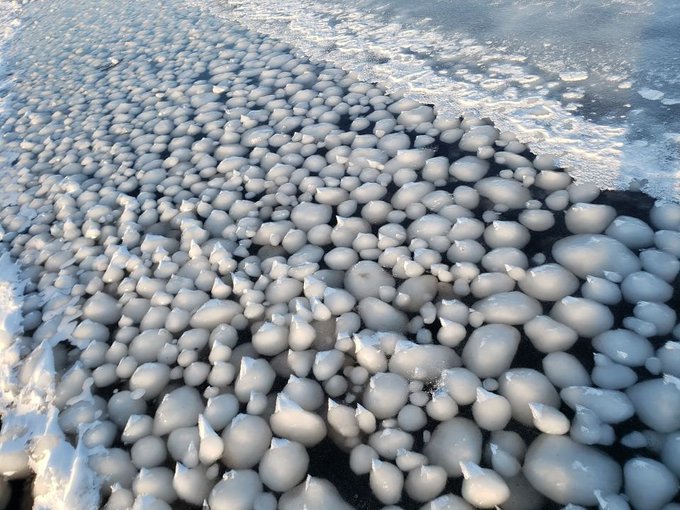
Jouni Vainio, an ice specialist at the Finnish Meteorological Institute, explained that “ice eggs” can form under the right circumstances, which include the right air and water temperature, shallow and gently sloping sandy beach, calm waves or a light swell, and something that acts as a core. This core starts collecting ice around it, and as the swell moves it along the beach, the icy spheres grow in size, creating a remarkable sight.
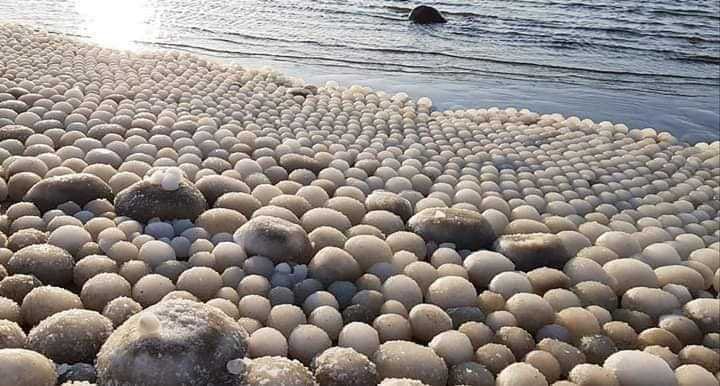
According to Dr. James Carter, an emeritus professor of geography-geology at Illinois State University, autumn is the best time to see this phenomenon. During this season, the surface of the water starts freezing, creating a slush-like substance that moves with the waves. As the slush gets pushed up the beach, it can start to freeze and create the small balls that make up the ice eggs. This formation process is fascinating to witness and is one of nature’s many awe-inspiring events.

While these icy spheres may look like man-made decorations, they are entirely natural, formed under highly specific weather and environmental conditions. The fact that they are so rare to see makes this discovery all the more remarkable. For those interested in seeing this phenomenon, it is crucial to visit during autumn and be on the lookout for the right conditions.
